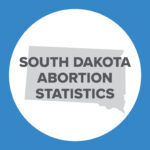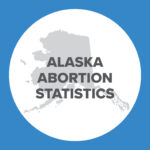Oregon’s Command Performance on Abortion Chains Conscience
Oregon Governor Kate Brown broke what theater patrons would call the “fourth wall” when she signed House Bill 3391 into law on August 14, dragging every resident of her state into the vast public drama over abortion and human rights. In an egregious and unprecedented move, Oregon has become the first state to guarantee free abortions for all residents—backed by the full faith and credit of the taxpayer. With this step, it becomes increasingly difficult for any Oregonian to sit in the audience on so important as issue.
Some scene-setting is in order. With the help of the federal Hyde and Weldon Amendments, millions of Americans have been able to exercise extensive rights of conscience while the abortion debate continues to play out. But several states, including California and New York, have a history of curbing those rights and have recently gone further, particularly in the realm of insurance mandates with few or no exemptions on religious or moral grounds. Sadly, Oregon has gone those states one better in the drive to make every taxpayer and insured person complicit in abortion, appropriating more than $10 million to cover abortions for any resident of the state whose insurance plan excludes such coverage.
Radical
Oregon’s HB 3391 is the most radical pro-abortion law in the United States. Under HB 3391, insurers must provide full abortion coverage—in all plans and for any reason. Abort the unborn child because she’s a girl? Free. The unborn child’s due date is just weeks or days away? Free. The unborn child may have Down syndrome? Free. No deductibles. No copays. No coinsurance.
Initially, HB 3391 required all insurers in the state to provide unlimited abortion coverage, with language grudgingly asserting that Oregon might – might – provide an exemption in individual cases if the failure to respect conscience could “adversely affect the allocation of federal funds” to the state. This language was an apparent reference to the possibility of federal enforcement of the Weldon amendment to protect pro-life insurance plans. After the state’s largest insurer (also its largest private employer), Providence Health Plans and Providence Health & Services (“Providence”), complained in March 2017 that the draft law required what Catholic teaching describes as “material cooperation” in abortion, the bill was amended to exempt Providence, but nobody else.
Even this exemption is ingeniously delimited. Providence can insulate itself financially from the abortion coverage mandate, but Oregon will now use the newly appropriated $10 million to reimburse abortion costs for anyone enrolled in an exempt Providence plan. Funds for these abortions account for the bulk of the state’s new spending. In addition, Oregon set aside an estimated $500,000 to abort the unborn babies of undocumented immigrants—which raises a variety of questions about the philanthropic nature of the state’s motives.
Where’s Weldon?
Since 2005, the Weldon Amendment has been passed annually as an appropriations limitation for the U.S. Department of Health & Human Services (“HHS”) as well as the Departments of Labor and Education. A complement to the federal Hyde Amendment’s protection of what could be termed “taxpayers’ conscience,” the Weldon Amendment protects pro-life health care entities from discrimination by Federal agencies or programs as well as by state or local governments that receive federal health care funds. In particular, the Weldon Amendment prohibits HHS and other agencies from providing funds to states that discriminate against health care entities that refuse to provide, to pay, or to refer for abortions. Thus, the Weldon Amendment supplies HHS with a mechanism for deterring and punishing discrimination against conscientious objectors to abortion in covered entities.
However, the Weldon Amendment’s text fails to create an explicit, private right of action. This means that health care entities (e.g., individual physicians, hospitals, or health insurance plan enrollees and employers) are not guaranteed access to the courts to seek enforcement of the Weldon protections when their conscience has been violated. Oregon health care entities may be able to access the courts if they prove that an implied private right of action exists—but that is an uphill battle for potential plaintiffs.
In all likelihood, Oregon health care entities, including employers, must rely on HHS to enforce the Weldon Amendment. In 2016, however, the Obama Administration struck a blow against this enforcement mechanism when the HHS Office of Civil Rights, responding to California’s abortion coverage mandate, issued a novel and insupportable interpretation of Weldon. The HHS OCR concluded that the conscience protections at issue applied only to the insurance companies involved in selling the coverage and not, ludicrously, to the employers who provide the insurance. Since the insurers involved are often all-too-willing to reduce the number of covered beneficiaries, and themselves depend on the regulatory state’s goodwill, the Obama interpretation more or less made the Weldon Amendment a dead letter.
Congress can address this situation by augmenting Weldon with a permanent law that makes a private right of action explicit. But Oregon residents deserve relief and can get it sooner if the Trump Administration reverses the Obama Administration’s constricted view of the Weldon Amendment’s scope. The Weldon Amendment is broad enough to do the job as it does not require a religious or moral objection to abortion on the part of the objecting entity. The Amendment’s protections are available to any objector, the exact opposite of Oregon’s extremely narrow exemption for religious entities that primarily employ or serve people of their own faith.
Moreover, the Weldon Amendment makes conscience protection a stipulation for states and local governments to receive agency funds. From fiscal years 2009-2014, HHS invested $56.6 billion in Oregon to enhance the health and well-being of the state’s people at every stage of life. Of those funds, $1.21 billion was allocated to improve access to health care for services for the medically underserved and to fulfill tribal obligation. If HHS decides to enforce the Weldon Amendment, it could withhold a substantial portion or even all the monies it directs to Oregon.
Nowhere to Hyde
Abortion clearly continues to be a contentious issue. Oregon’s HB 3391 is a direct assault on the right of conscience that, among its other virtues, allows pro-life Americans a zone of operation in which they can live out their convictions as the debate proceeds. Gov. Brown and her fellow lawmakers have now broken the invisible wall that protected that zone and allowed millions of Oregonians to refrain from material cooperation in abortion. Protecting the lone health care network in the state that refuses to participate in abortion solves a part of that problem, but every pro-life citizen in the Beaver State deserves to be free to buy a plan that accords with their values and not to finance an abortion industry that will reap a new taxpaid windfall under HB 3391.
Oregon taxpayers are now on the hook for free, elective, and virtually unlimited abortions. The Hyde and Weldon Amendments have been strong bulwarks for protecting the right of millions of Americans to pursue a more perfect union without sacrificing their individual moral or religious conscience. If HB 3391 remains in effect, however, many Oregonians will be forced to choose between their conscience and their place of residence—potentially having no option but to leave a state so committed to abortion. Perhaps hinting of such a stark worldview, New York Governor Andrew Cuomo spoke not so long ago of pro-lifers’ having “no place” in the Empire State.
Gov. Kate Brown has made no such statements, but she and the Oregon legislature have made their attitude clear. Conscience has no place in the Beaver State, and abortion on demand, for any reason, is the super-right all must hail.
Chuck Donovan is President of the Charlotte Lozier Institute.
























